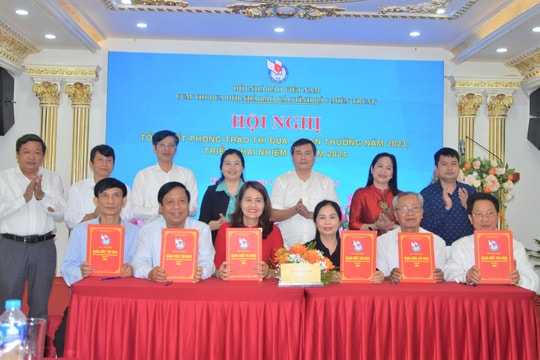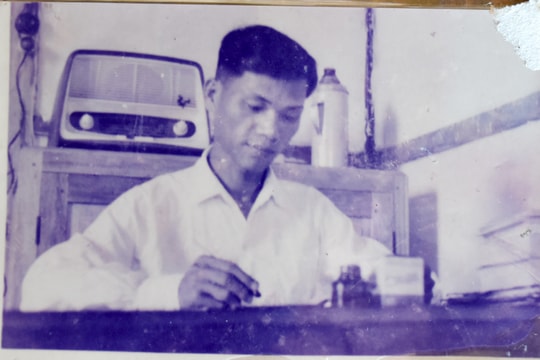Journalist Ly Van Sau - From Nghe An to Paris & La Habana
Among the revolutionary journalists born in Nghe An, Ly Van Sau (1924-2012) was a journalist of international stature.
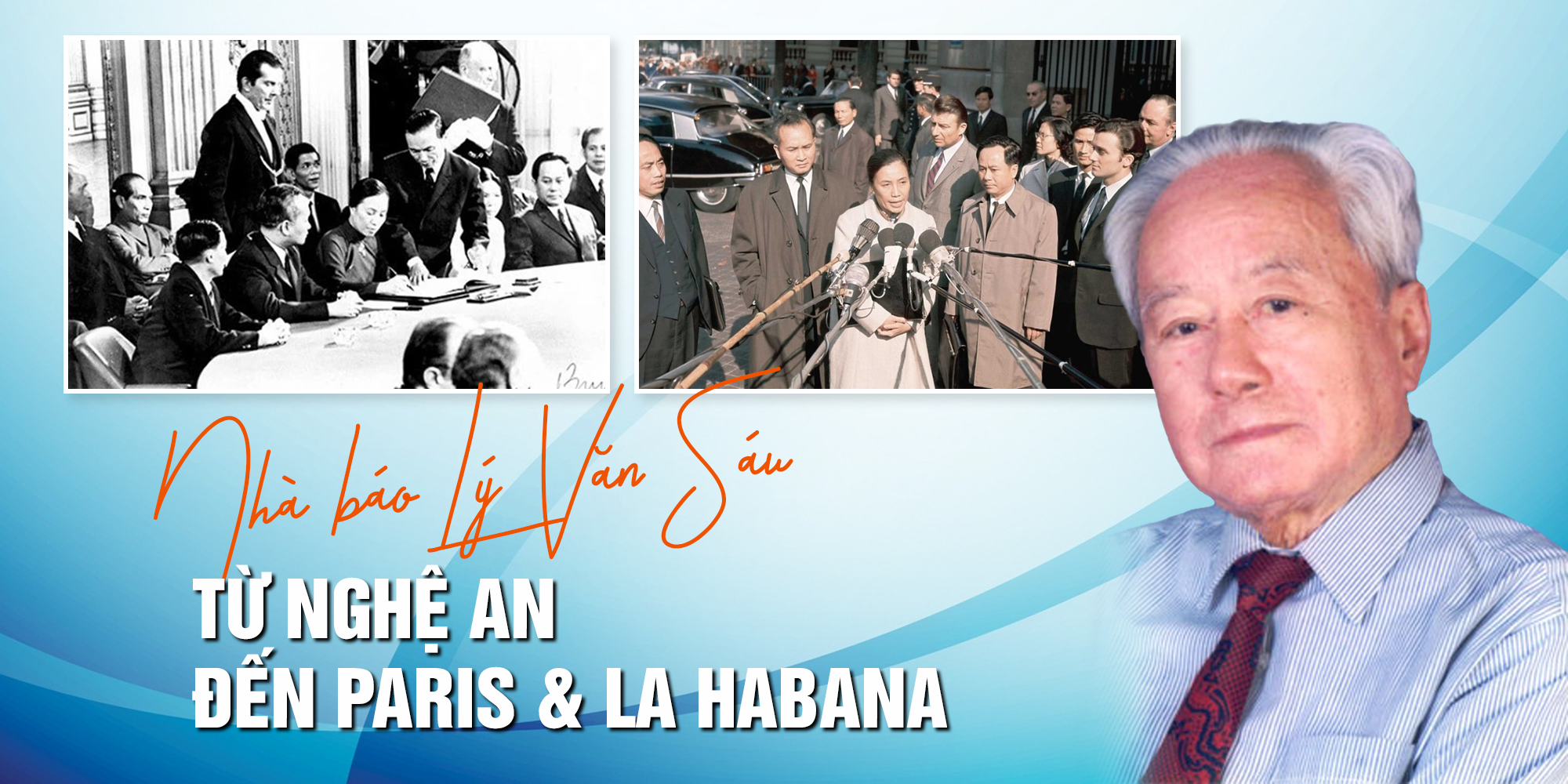
Nguyen Si Dai • October 31, 2024
Among the revolutionary journalists born in Nghe An, Ly Van Sau (1924-2012) was a journalist of international stature.
His birth name was Nguyen Ba Dan. His father was Bachelor Nguyen Trong Thuan, born in 1890, passed the Bachelor's exam in 1915, when he was only 22 years old. Mr. Ly Van Sau once wrote about his father: "He was the one who built the first school in my village to teach the national language. He built the first market in Yen Nhan village on the banks of the Han River... My father loved people in trouble, respected his fellow countrymen, and took care of his relatives and clan. Being an official with a low salary, there were always one or two old scholars from Nghe An who had fallen on hard times staying with him every month. There were four or five relatives whom my parents raised, educated, and taught them a trade, and they did not complain when they were poor. With political prisoners, he tried every way to help them, lightened their sentences, and never tortured them."
Ly Van Sau and Phan Ngoc (later a leading translator, researcher of literature, language, and culture), sons of Phan Vo, were both brothers and friends (Phan Vo was the older brother of Phan Thi Phu, Ly Van Sau's mother) and were active in youth activities, participated in the dissemination of the national language, joined the Viet Minh before 1945, and participated in the seizure of power in their home district during the August Revolution. At this time, his father, the district chief of Van Ninh, was arrested and extradited to Nha Trang.
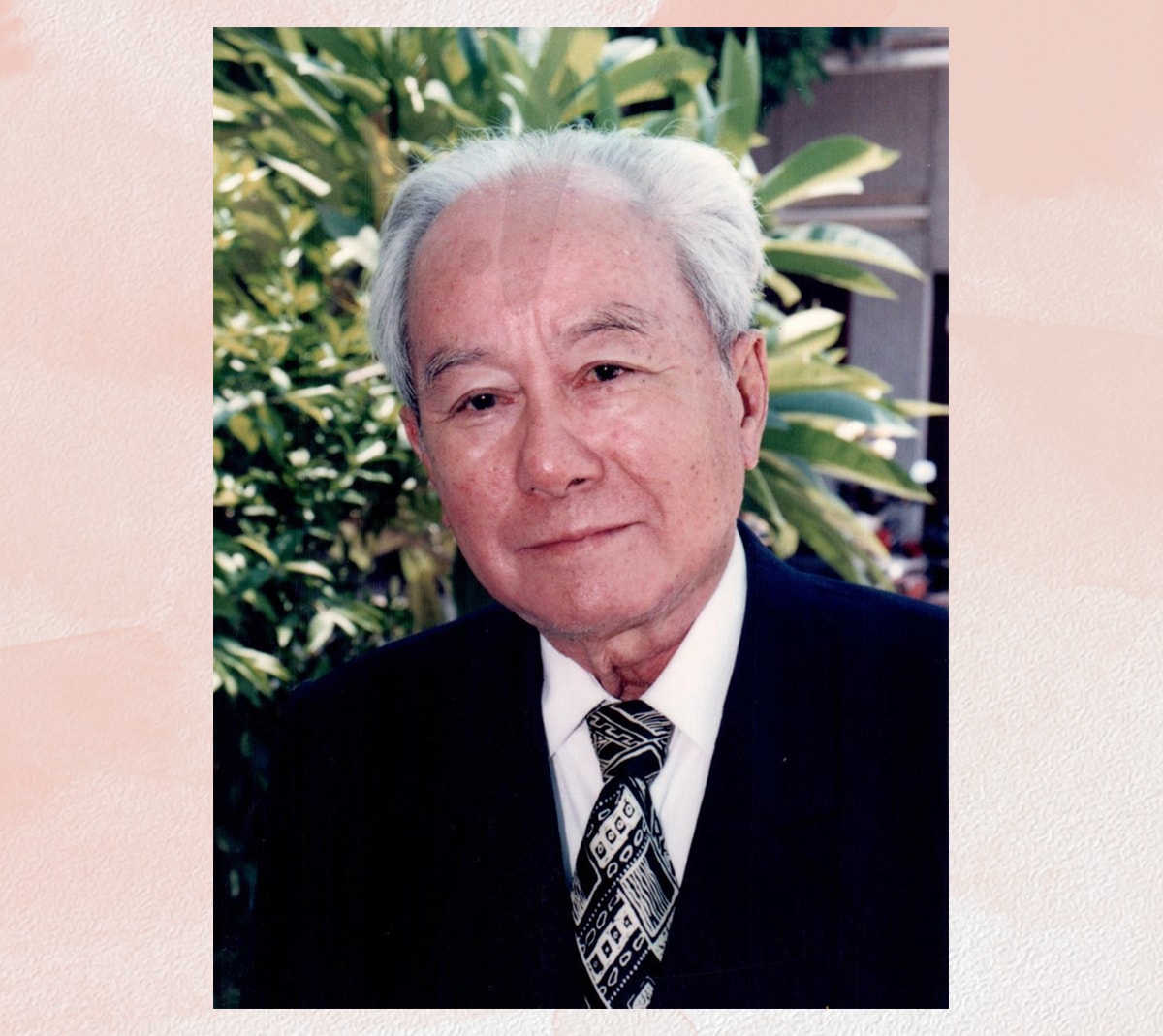
As a dutiful son, not knowing his father’s fate, with twenty Indochinese piastres, he traveled to Khanh Hoa to find his father. After two months, having gone through many hardships, he finally met his father in prison, collapsed in tears and bowed three times to his father. The father bent down, helped his son up and said: “You came to see me, I am so happy. Without you coming, I would have had a hard time living. I am not guilty and do not know what crime I was charged with”! It is understandable that ordinary farmers followed the revolution. People in circumstances like Ly Van Sau followed the revolution with a very high level of awareness and enlightenment.
The Southern Resistance War broke out (September 23, 1945), Ly Van Sau joined the resistance in Khanh Hoa. The Nha Trang front was broken, the people and many cadres evacuated to the free zone. A few people remained to go to the base. Ly Van Sau was one of those few, along with Pham Cu Hai - Vice Chairman, Ton That Vy - Chairman of the Khanh Hoa Resistance Committee. He was appointed as the Head of the Provincial Information Department. The assigned task at that time was to use radio to monitor and grasp the situation in the country and the world, grasp the Central's direction through the Voice of Vietnam. In 1947, he was admitted to the Party, and used the alias Dai Tay, because he covered his ears with headphones all day to listen to the news.
Pioneer in building revolutionary journalism
Thang Newspaper was born, demonstrating the spirit of determination to fight and win of the people of Khanh Hoa province, the predecessor of today's Khanh Hoa Newspaper. Ly Van Sau was assigned as editor-in-chief (Editor-in-Chief). The newspaper was born in the Hon Du war zone (Khanh Vinh district), printed in stone with sarcophagus ink, the first issue was published on April 26, 1947; each month, 2-3 issues were published, each issue had 4 pages with about 600-700 copies printed but had a great reputation. While working for Thang Newspaper, Mr. Sau also worked as editor-in-chief of the enemy propaganda newspaper called Le Trait d'Union (The Hyphen).
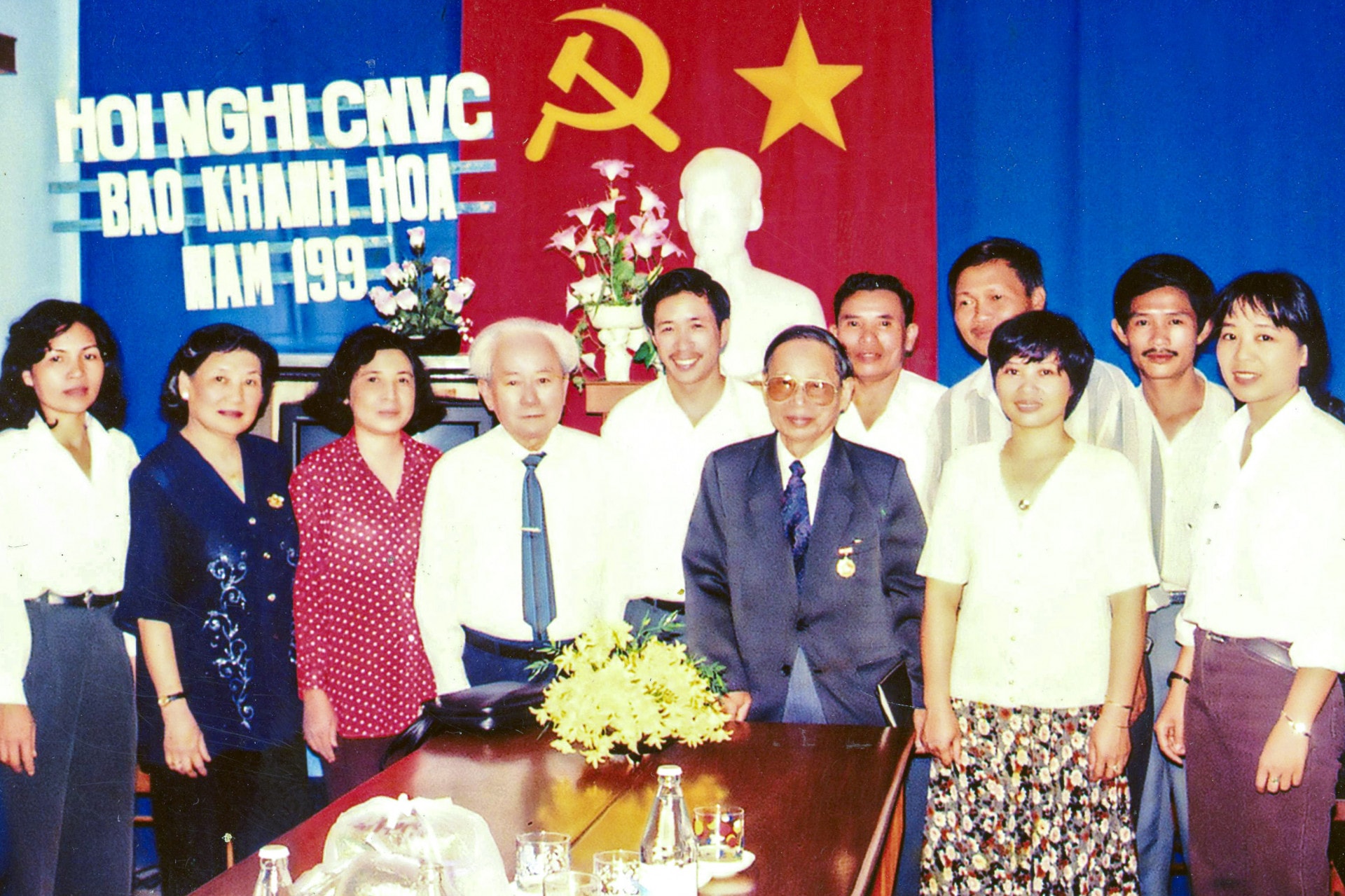
In 1949, Inter-Zone V assigned Ly Van Sau to directly edit and assist Director Nguyen Van Nguyen in operating the Voice of the South (alias Tay Son Department). Mr. Sau was ready to accept the duties of a cadre during the resistance war: While working as the Head of the Department, he became a journalist; while working as the Editor-in-Chief, he became an editor.
From 1968 to 1973, he was the spokesman of the National Front and then the Provisional Government of the Republic of South Vietnam at the Paris Conference.
September 1973 was Head of the Propaganda and Culture Department of the Southern Committee (Unification Committee).
May 1975: First Deputy Director of Ho Chi Minh City Television Station.
July 1977-1986: Deputy Head of Vietnam Radio and Television Commission and Editor-in-Chief of Central Television 1977-1980; Editor-in-Chief of VTV 1980-1985.
1987 - 1991 was Deputy Editor-in-Chief of VNA and retired here.
Ly Van Sau's life was that of a journalist, soldier, and revolutionary diplomat. Every step of his life was closely linked to the development of journalism and the history of his country.
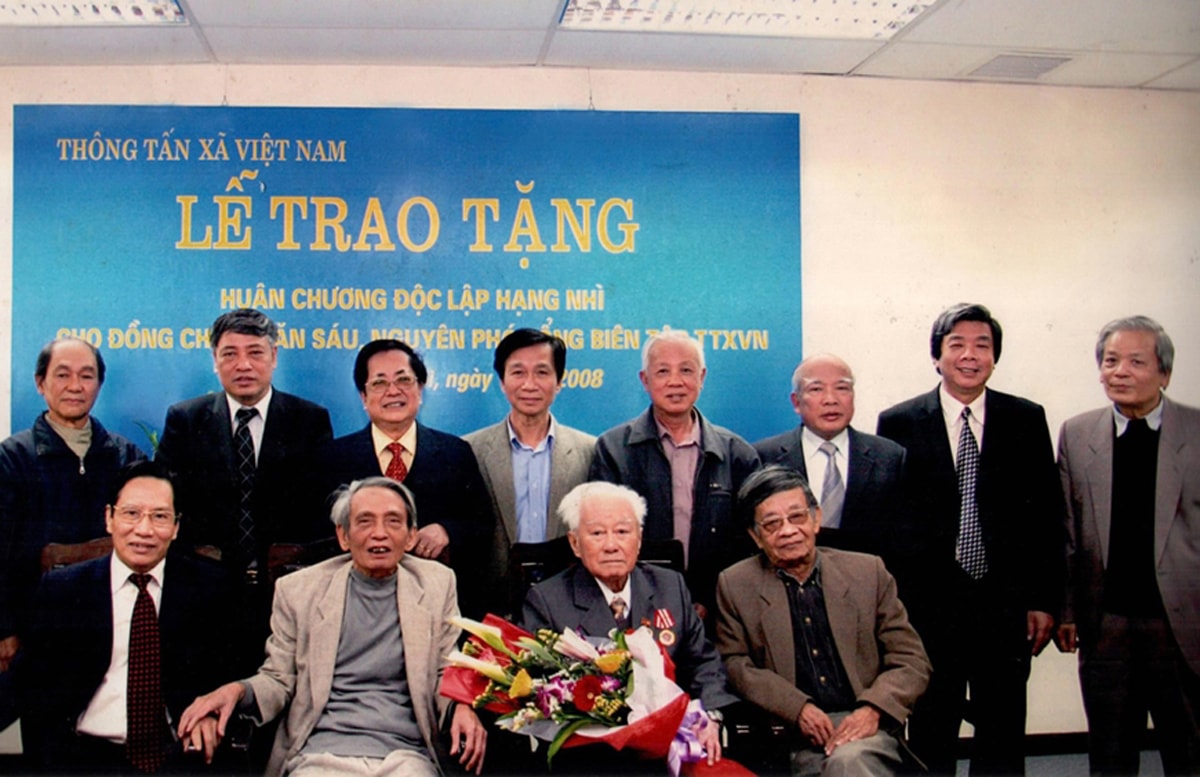
Witness of the Fidel Castro quote
In an article published in the Electronic International Research magazine on December 1, 2016, journalist Ly Van Sau said:
“There was an unforgettable memory for me during my time working in Cuba, that was the time I directly witnessed the words of leader Fidel at a rally attended by more than one million people at Revolution Square in the capital city of Havana: “For Vietnam, we are willing to sacrifice even our own blood.”
As soon as Fidel finished his strong statement, the entire Revolution Square exploded with cheers and applause from the attendees...
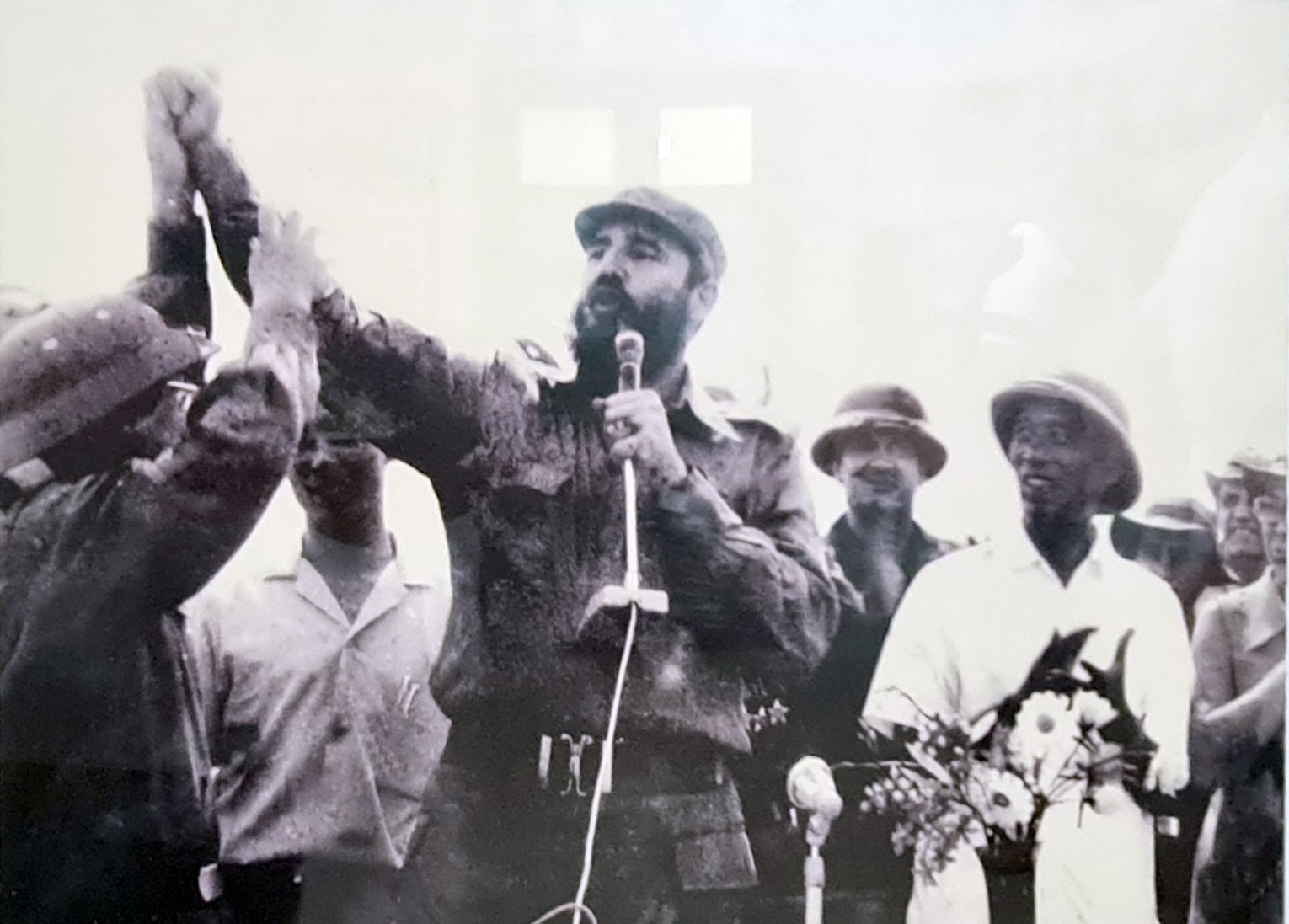
The very next afternoon, leader Fidel invited the two heads of delegations from South and North Vietnam to a private meeting. I was also present because I was the interpreter for the two heads of delegation. Fidel received the three of us at the Palace of Revolution. The meeting became a historic event of which I am now the only living witness, and perhaps very few people know the content of the conversation that Fidel had reserved for us that afternoon... At the meeting, Fidel said: "Today I meet you comrades to explain why I said that. First of all, it is because of the unconditional solidarity that we have for the Vietnamese people and to show our determination to always support you comrades in the struggle against the US... We are willing to go hungry so that the Vietnamese people have rice to fight, we are even willing to sacrifice our own blood".
Famous speech in Paris
The victory of the Paris Conference was decided by the victory on the battlefield. However, the diplomats following Ho Chi Minh's ideology at the Paris Conference, through political diplomacy, people's diplomacy, and press diplomacy, contributed greatly to the results of the Conference, to making the world understand Vietnam, to promoting the protest movement in support of Vietnam throughout the world and right at home in the US. Journalist Ha Dang, a former member of the Southern delegation attending the Paris Conference, always talked about this event with great enthusiasm. He remembered very well the answers of the journalist - spokesman of the Front Delegation Ly Van Sau.
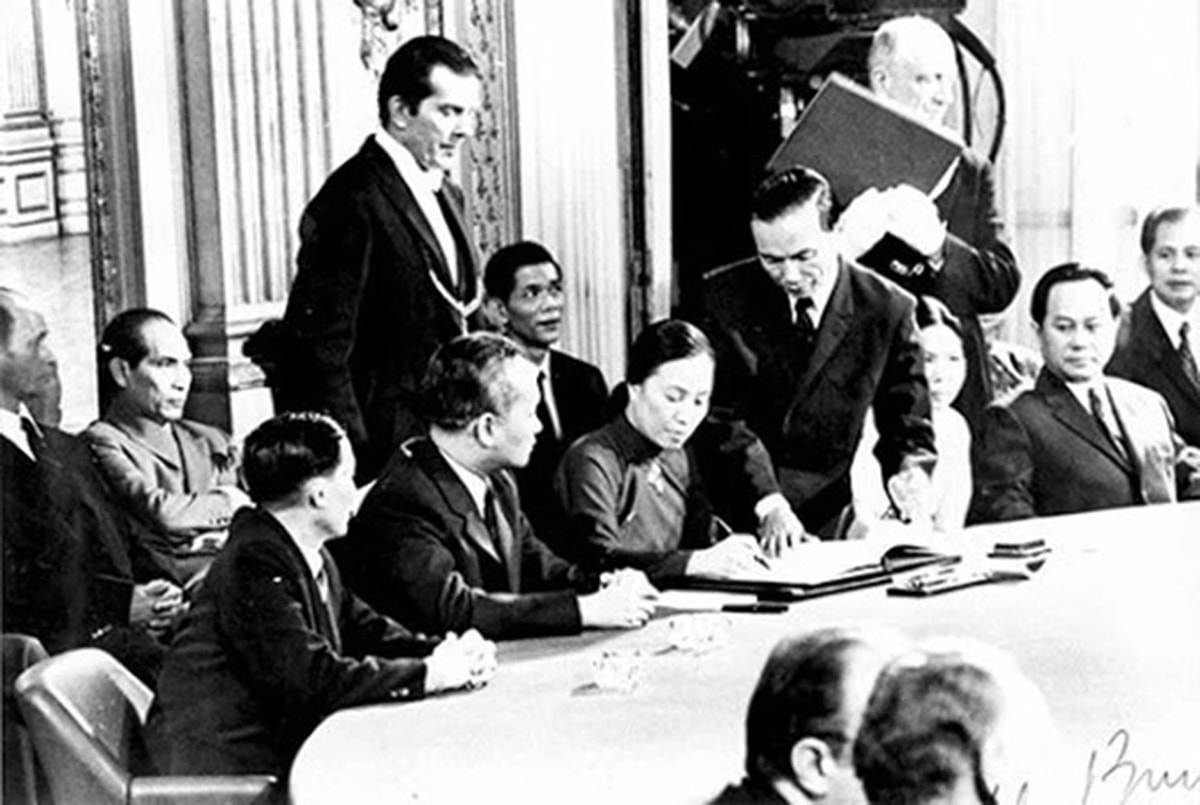
Right at the press conference after the first session of the Paris Conference on January 25, 1969, an American journalist spread out a rather large map and asked a tricky question: "Your front often boasts that it controls two-thirds of South Vietnam's territory, so would you please show me on this map where those liberated zones are?" After Mau Than, the enemy rushed out to retake many liberated zones. In reality, there were many areas where the enemy was in charge; many areas belonged to the Liberation at night and the puppets during the day. The US-puppet government and military posts were everywhere. If we answered specifically, the secret would be revealed and the enemy would certainly provide evidence to refute it. This was the first press conference, success or failure was very important. The people in both delegations were very worried. Ly Van Sau calmly and ecstatically said:
“What you asked is also what the US military command in Saigon wants to know. Please read the US military announcement today, see where their planes bombed in South Vietnam, those places are our liberated zones”. Applause echoed throughout the meeting room, the most exciting was the applause of our brothers for having overcome a challenge…
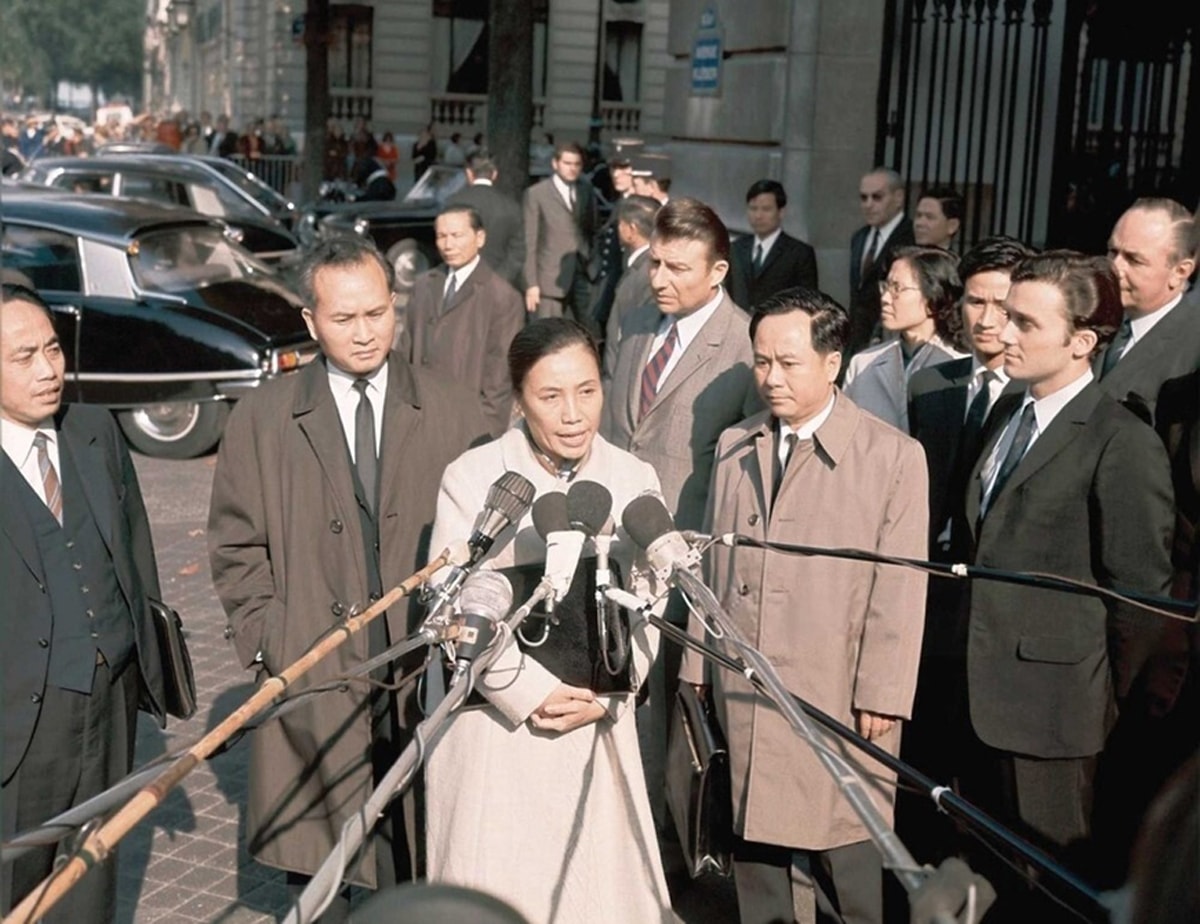
At another press conference, a French journalist asked: "What do you think about the Saigon delegation leader boasting about the good nature of their government?" Ly Van Sau replied: "It is easier for a camel to go through the eye of a needle than for the Saigon government to claim to be independent, democratic, and patriotic." Laughter rang out again. People did not expect that the atheist communist could memorize the Bible and use it humorously in the Western style. The next day, the Catholic newspaper La Croix wrote: "The Viet Cong spokesman is also using allegories in the Bible." In March 1969, the US carpet-bombed the area where the Central Bureau was located but could not destroy our headquarters. A foreign journalist asked Ly Van Sau: "Where did your Central Bureau go that it was so talented?" He pointed to his heart and said: "Our leaders are in the hearts of the people so the US army cannot find and capture them. Maybe they are in Saigon now!"
Such dignified and highly cultural responses of Ly Van Sau make the world understand and admire Vietnam even more.
Deep love, keep morality
Nguyen Ba Dan - Ly Van Sau with deep filial piety for his biological father, who is also a devoted, faithful, and loving husband, father, and grandfather.
On the revolutionary path, he met a beautiful and loyal revolutionary girl from Khanh Hoa. They got married in the war zone at the end of 1948. Mr. Sau wrote in his memoir:
“The land of agarwood gives me two treasures.
A revolutionary path
A Pearl to love and light the way!”
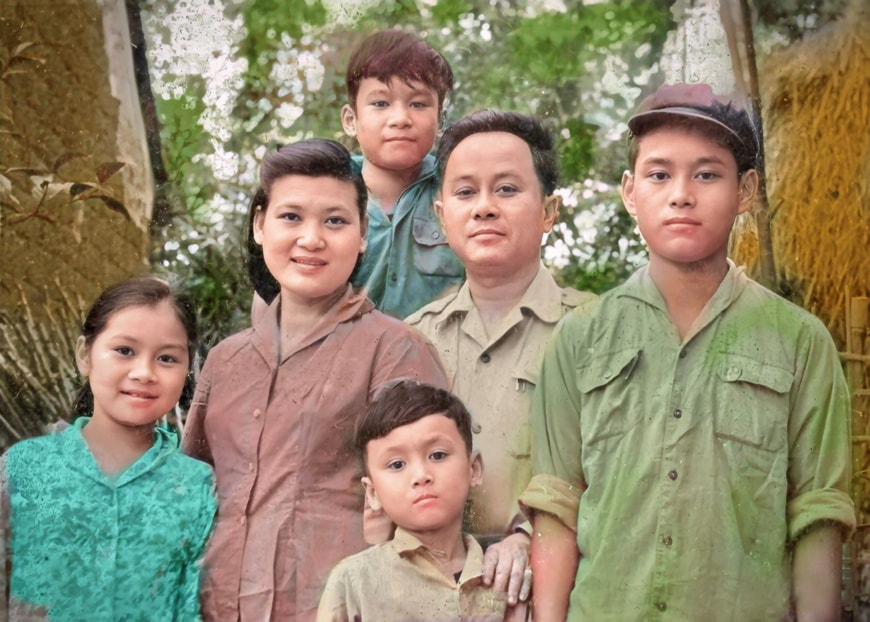
The official's judgment. Senior Lieutenant General Nguyen Huy Hieu remembered him: "Uncle Ly Van Sau was a talented diplomatic officer of the Party, an exemplary, pure, and loyal officer."
Writer Nguyen Chi Trung, former Assistant to General Secretary Le Kha Phieu, affirmed: "In the homeland of Inter-zone V, the dedication, heart and will of Ly Van Sau, a big brother in the Vietnamese press and arts team, will forever remain with the country, comrades and people."

